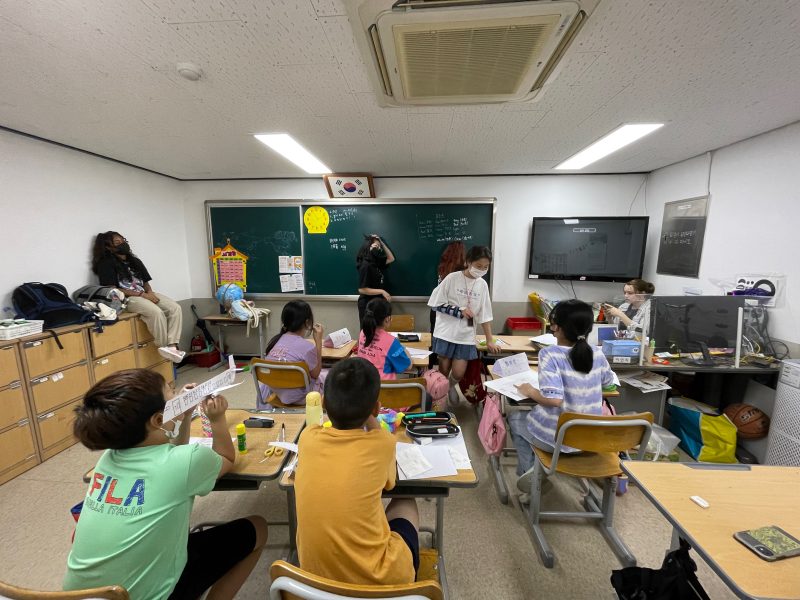When I applied to Duke Engage Korea, I dreamed of acquiring new experiences in my home country from a different perspective and encountering new people. Reminiscing about the last two months in Korea, I can confidently say it was much more than I expected.
Working at different educational sites meant a lot because I was able to meet diverse people. They all had their own unique stories and characters regardless of their ages. Although I didn’t have much experience in teaching young students before this program, I tried to equip myself with better communication skills. I appreciate the time we spent together since we were able to build friendlier bonds than a mere teacher-student relationship. Working closely with real people also reminded me that policy discussions should always embrace real stories, not only theories or statistics. We debate about many different issues on the table, but ultimately some people are directly involved. Hence, during the engagement, I was able to think critically about how I want to interact with people in different settings and contexts. This program really provided me with an opportunity to think beyond academics.
Our trip to Jeju Island was also an eye-opening experience because we visited sites that have historical and sociopolitical meanings that are not even well-known to Koreans. Jeju 4.3 uprising had the second largest casualties following the Korean War in Korean history, but most people have never heard about it. It took decades until the government admitted that it was an oppressive massacre against innocent residents in Jeju Island. When we learned about this tragic history, we weren’t able to imagine a fun tour of Jeju Island (which is what we would usually expect); instead, we explored both the beauty and gravity of the island.
I want to share a short episode. When we went to the site where preventive detention occurred, two men came to us with small pamphlets about what happened there. They told us that their family members were sacrificed for no reason when they were young. One of them showed us his diary he wrote on the day people found remains of the victims. He wrote that the remains were unrecognizable so he had to grab whatever bones that were big because his older brother was very tall. Just imagining this glimpse of a story is already heartbreaking, but his diary was void of emotion. The last sentence was “I also bought a world history textbook today.” It is completely irrelevant and probably was not a memorable incident to write about, but the families of the victims were forced to remain silent because they might also become innocent targets for contamination. Interacting with people who are living proofs of concealed tragedy touched something deep inside me, which I would never be able to feel simply through reading books.
Wrapping up, this summer was fulfilling, fun, and unforgettable. Korea would never feel the same, but I would always keep this summer in my heart. I want to thank Professor Kwon, Professor Kim, and of course, D3K. We were the best team, friends, and new family!



